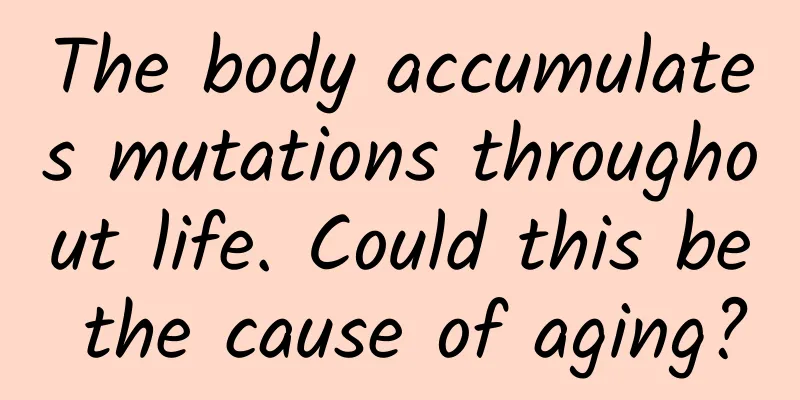Why can you walk a thousand miles if you hold your urine, but you can’t walk an inch if you have diarrhea? You may never hold your urine again after reading this!

|
As the saying goes, there are three urgent things for human beings: shit, urine and fart. However, shit, piss and fart are slightly different. For many people, this is how it feels. Even if you feel like urinating, you can still hold it in for a while, but when it comes to defecation, you really can't hold it in. Is there really a big difference between holding in poop and holding in pee? Yes, there is. This is not a problem that can be solved by willpower alone, because urination and defecation are very different at the physiological level. 01 Urine journey Among the nine systems of the human body, the urinary system functions like a complete sewage system. Various wastes in the human body are excreted in the form of urine. So how is urine produced, stored and excreted? This brings us to the structure of the urinary system. It is divided into four parts: kidneys, ureters, bladder and urethra. Their functional assignment is very clear. The first part, the kidneys, are responsible for producing urine; The second part, the ureter, is responsible for transporting urine to the warehouse. Since humans have two kidneys, one on the left and one on the right, there is naturally one ureter on each side. The third part is the warehouse for storing urine, which is the bladder. The fourth part, the urethra, is responsible for excreting urine from the warehouse out of the body. It's easy to see that when we talk about holding urine, we are mainly talking about storage and discharge. Naturally, it also involves the structure and function of the bladder and urethra. The bladder looks like a balloon, with large capacity and good elasticity. When there is less urine, the bladder becomes soft and deflated. When the amount of urine is large, the nerves on the bladder wall are stretched, which transmit nerve signals to the central nervous system, telling the commander-in-chief that it is time to drain the urine. So we feel the urge to urinate. The central nervous system is divided into the brain and spinal cord. The urination reflex is completed in the spinal cord. However, during the urination reflex, the higher centers in the brain are not idle. It can consciously regulate the urination reflex. In layman's terms, our brain can actively control the urinary system and help us hold urine. In addition, the next stop for urine from the bladder is the urethra. Compared with the digestive tract, the urethra is quite thin and is a thin and soft tube. Tightening it is relatively simple. There is also a structure called the external urethral sphincter at this location. This muscle is skeletal muscle, what does that mean? The muscles in the human body can be roughly divided into skeletal muscle, smooth muscle and cardiac muscle. Smooth muscles and cardiac muscles are involuntary muscles, which means that no matter what you think in your brain, you can't control these involuntary muscles at all; Skeletal muscle is voluntary muscle and is controlled by your brain. Simply put, our consciousness can suppress the urination reflex. It also tightens the external bladder sphincter. This series of activities can help you hold your urine. That is to say, we can consciously hold our urine. 02 Shit's Journey The formation process of feces is different from that of urine. We can understand the digestive system in this way: it is a long tube with a bunch of digestive glands hanging on the side, which are called the digestive tract and digestive glands. The function of the digestive tract is to allow food to enter from the mouth and eventually be excreted from the anus as feces. It provides the site for digestive functions, while the digestive glands are responsible for producing digestive juices. At each stage of digestion, digestive juices are injected into the digestive tract. For example, the liver is the largest digestive gland in the human body. Of course, when it comes to the problem of holding back poop, the function of the large intestine is mainly involved. The large intestine has two functions: the first is to store food residues, and the second is to absorb water. After being processed and stored by large factories, food waste is completely transformed into feces. Because the digestive function of the large intestine is relatively minor, and its functions also include storage. Therefore, the peristalsis of the large intestine is less frequent and slower. But slow doesn't mean it's not moving. Under normal circumstances, stool takes several forms and performs a unique movement, pushing food residues step by step towards the anus. The first form of movement is called pouch movement , which is caused by irregular contractions of the muscles in the large intestine. This type of exercise is most common when the stomach is empty and the body is at rest. However, this movement mainly promotes the absorption of water and does not move food residues forward. The second form of movement is segmented movement and multi-generational propulsive movement. These two forms of movement involve the regular contraction of the large intestine muscles, which pushes food residues forward. The third form of movement is peristalsis. In this propulsion mode, food residues will also move forward. The key point is that these forms of movement are all performed by smooth muscles. We have just mentioned that smooth muscles are involuntary muscles and are not under conscious control at all. These movements are happening all the time in your large intestine, whether you are awake or asleep, working hard to push food debris out. Simply put, it is impossible to use conscious power to order food residues to slow down their movement. Eventually, the food residue absorbs water as it moves through the large intestine, eventually forming feces. When they reach the rectum, they put enough pressure on the rectum to pull on the nerves in the rectum; The nerve signals are then transmitted back to the central nervous system, telling this commander-in-chief that it is time to defecate, and then we feel the urge to defecate. So can we hold our poop? Because there are skeletal muscles around the anus, which are controlled by our consciousness. When we are in a state of mutation, if conditions do not allow, we can still hold on for a while. But compared to holding back urine, holding back feces is much more difficult. Our consciousness can inhibit the urination reflex and exert a certain influence on the organs that store urine. At the same time, consciousness can control the channels through which urine is discharged. It can be said that when holding urine, it is a two-pronged approach. But the digestive system is different. Our consciousness cannot control the peristalsis of the large intestine. No matter what situation we are in, the large intestine is slowly but surely pushing feces forward. Although the anus also has skeletal muscles and can be controlled by consciousness, it still feels a bit powerless. In short, from the anatomical and physiological perspective of the urinary and digestive systems, holding urine is easier than holding feces. But in fact this problem is not that simple. There are many diseases that can affect the defecation and urination process. For example, prostate hyperplasia is a common disease in men, which can cause difficulty in urination. Stress urinary incontinence is a common disease among women, which makes it impossible for patients to hold their urine. These situations still need to be analyzed on a case-by-case basis. Finally, a special reminder: whether you hold your poop or urine, it is not good for your health. The above text can answer some of our small confusions, but we should still try to avoid holding poop and urine. Author: Sun Yifei, Medical Education History Research Office, Hebei Medical University Review|Xiao Yongshuang, deputy chief physician of urology department, Xuzhou Medical University Affiliated Hospital |
<<: 450 million years ago, this ancient "cute creature" was actually a fierce "catcher" in the ocean
Recommend
A woman was diagnosed after receiving a courier, and two key actions kept her family from getting infected! How to protect yourself when receiving a courier?
On March 18, a news report that "a Zhejiang ...
How to trigger user growth? (The most complete mind map)
In fact, user growth is very common in our lives....
Huainan SEO Training: What should SEO novices know? Is it difficult to do SEO well?
The existence of SEO optimization positions means...
How to use the media to create internet celebrity products?
Every company wants to build its own internet cel...
Can eating pumpkin and corn lower blood sugar? My parents have been eating them for many years, but they don’t know the inside story…
Expert of this article: Dou Pan, deputy director ...
APP promotion: 7 ways to acquire seed users in the early stages of entrepreneurship!
When it comes to promotion, I guess the first ste...
What’s the secret behind Microsoft’s proactive deletion of its facial recognition database?
1. Microsoft quietly deleted its facial recogniti...
The National Aviation Model Open Competition (Shenzhen Station) and the 17th "Shennan Circuit Cup" Shenzhen Aviation Model Open Competition in Nanshan ended successfully
Events The National Aviation Model Open Competiti...
IHS Markit: Average U.S. vehicle lifespan reaches record 12.1 years in 2020
The average useful life of U.S. cars and light tr...
Double 11 Douyin e-commerce live broadcast review practical manual
A few days ago, I posted a message on WeChat Mome...
Meandering: The Yellow River's posture in Sichuan
A meander, also known as a river bend or a snake-...
Budget account, how to set the daily budget for Baidu promotion account?
The detailed explanation of the daily budget of B...
How does Baidu Direct charge per click?
The charges are based on clicks, and only valid c...
Essential: 126 tools and 15 promotion channels for a complete event planning
"What tools are needed for a complete event?...









